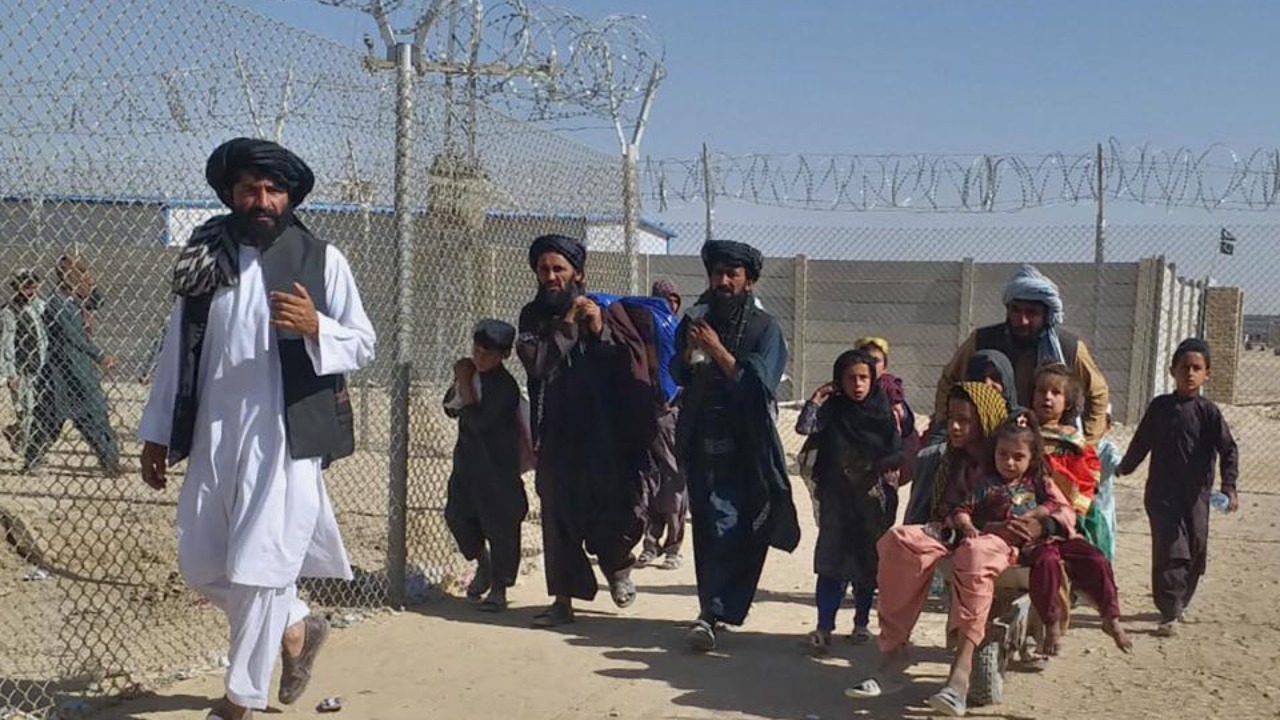The Government of Pakistan has formally announced it will not extend the stay of Afghan refugees holding Proof of Registration PoR cards beyond the June 30 2025 deadline. Interior Minister Mohsin Naqvi confirmed that renewal of PoR cards has been halted signaling a major policy shift towards stricter immigration enforcement—especially targeting undocumented migrants and those who have overstayed legal residency .
Advertisement
Advertisement
Advertisement
Policy Change and Enforcement
On July 20 2025 Minister Naqvi told journalists that firm action would be taken against Afghan nationals residing in Pakistan without valid documentation. According to the revised policy PoR cards will not be renewed and authorities have begun a phased repatriation process. Those already deported will be blacklisted prohibiting their future entry into the country .
Citing regional parallels Naqvi noted that “Iran deported over 300000 Afghan refugees in just 10 days” and emphasized that Pakistan intends to implement a similarly robust deportation framework .
While reiterating Pakistan’s historical solidarity with Afghanistan Naqvi made it clear that illegal stay would no longer be tolerated. He described Afghanistan as a “brotherly Islamic country” but stressed that diplomatic goodwill cannot override national law. Diplomatic dialogue is ongoing but the enforcement of immigration law remains a priority .
Also read : Pakistan Becomes the Third Largest Mango Exporter in the World
Legal Review
In a parallel development the Islamabad High Court IHC declined a petition filed by former senator Farhatullah Babar who had sought a stay on the government’s deportation order. On July 18 Justice Raja Inaam Ameen Minhas ruled that the judiciary would not intervene in official state policy on the matter. He further noted that Pakistan holds no binding international obligation to provide indefinite refuge to Afghan nationals .
The court reaffirmed the government’s authority confirming that Afghan nationals must depart the country by the June 30 deadline. The petition was adjourned without any interim relief being granted .
Historical Context and Scope
Pakistan currently hosts approximately 15 million Afghan refugees both registered and undocumented. In October 2023 authorities launched a nationwide crackdown on undocumented Afghans leading to the repatriation of over 813000 individuals by early 2025 .
Afghan Citizen Card ACC holders were initially ordered to leave by March 31 2025 although the deadline was extended . PoR cardholders—recognized under UNHCR protections—remained temporarily exempt until the recent policy reversal .
Pakistan has previously granted “multiple extensions for both ACC and PoR holders under international pressure striving to balance domestic concerns with humanitarian commitments. However the new stance represents a firm pivot toward stricter immigration control .
Regional Ripples
This move aligns with a broader regional trend. Iran’s mass deportations of Afghans prompted Pakistan to accelerate its own repatriation measures. Meanwhile in the United States a decision to terminate Temporary Protected Status TPS for approximately 12000 Afghans has triggered legal challenges. A federal appeals court in the US temporarily blocked the deportations highlighting the complexity of refugee issues across jurisdictions .
Unlike the US Pakistan’s policy has the backing of both the executive branch and the judiciary leaving little room for legal resistance .
Humanitarian and Practical Impact
Human rights organizations and UN agencies have voiced concerns over the humanitarian implications of the mass deportations. Reports from similar actions in Iran revealed severe conditions faced by returnees including exposure to extreme heat and lack of essential services. Similar risks are anticipated for Afghans being returned from Pakistan .
The UNHCR and other advocacy groups continue to urge Pakistan to ensure due process and legal protection for vulnerable populations particularly women and children .
For many Afghan families this marks another chapter of instability. Displaced during the Soviet invasion and more recently during the Talibans return to power post 2021 many now face a bleak future. Loss of PoR status could mean exclusion from work education healthcare and banking—further entrenching hardship .

Looking Forward
The June 30 deadline marks a turning point . With no legal avenues left to challenge the repatriation directive enforcement is expected to intensify. While international voices continue to call for leniency and legal reform Pakistan appears resolute in its course
Future developments will depend on “diplomatic talks with Afghanistan UNHCR negotiations and global humanitarian engagement. Unless documentation is reinstated or new legal pathways are introduced mass repatriation seems inevitable—profoundly impacting the lives of over a million Afghans currently residing in Pakistan .
